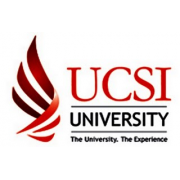
UCSI University’s Medicine programme recruits and trains students to become medical doctors to meet the needs of the healthcare system of the country. This goal is achieved with highly qualified staff, fully-equipped laboratories as well as other essential facilities. With learning as its training thrust, active student participation is the standard expectation.
At the end of the MD programme, the graduates would have attained the fundamental knowledge, attitude, and skills in the following five areas:
Student-centred Learning
With a student-centred rather than teacher-centred programme, the curriculum is structured to foster and encourage student learning and the fostering of ownership over their own learning as the main objective.
Problem-based Learning (PBL)
The Faculty recognises that the philosophy of using problems to learn is the most effective learning approach suited to medicine, and is used to enhance the learning in Basic Medical Sciences.
Integrated Learning
Both Basic Sciences and Clinical Sciences are integrated throughout the academic training with early clinical exposure in the form of hospital visits to enhance the learning of Basic Sciences and to facilitate student transition to a comprehensive hospital & Community-based learning that enables students to develop their interviewing, communication, and physical examination skills. Arranged in Year 2 of the programme, these visits enable students to put their training into practice, as well as to facilitate their transition into the clinical environment in Year 3.
Computer-assisted Learning
The learning process is further strengthened with active incorporation of multimedia tools, which include a computerised multi-purpose laboratory and 3D cyber anatomy software for anatomy dissection sessions
The five-year M.D. programme is segregated into two phases. Phase 1 of the programme (the first two years) is conducted at the Kuala Lumpur campus while Phase 2 (the final three years) is based at the clinical school at the Terengganu campus. Each semester comprises approx 16 weeks of class sessions whereby the hours of contact for each session ranges between one to two hours per session.
Academically-qualified candidates are required to attend an interview for admission. The outcome of the interview determines a candidate’s successful admission into the programme.
There will be three Professional Examinations. The First Professional Examination comprises two parts: the first part to be taken at the end of the first year and the second part at the end of second year. The student will proceed to the subsequent year on passing this examination. Students may be allowed to re-sit but will be excluded from the course if they fail the re-sit examination. Students may also request to repeat the year in lieu of a re-sit examination but he can do so ONLY ONCE for Phase 1.
The Second Professional Examination will be conducted at the end of the fourth year. Progression from the third year to the fourth year and eligibility to sit for the Second Professional Examination is subject to satisfactory completion of all postings. There is no re-sit examination and students who fail will repeat the year. This will be allowed ONLY ONCE.
The Third Professional Examination will be conducted at the end of the final year. Those who fail may be allowed to take re-sit the examination after SIX MONTHS and a second re-sit after a further six months should they fail in the first re-sit. Should they fail the two re-sit examinations, they will be precluded.
Notwithstanding the above, students are subject to the rules and ethics of the professions in their daily performance. Repeated non-compliance can result in their being precluded from the course.
*Minimum B grades are required at SPM level for 5 courses [Biology, Chemistry, Physics, Mathematics/Additional Mathematics and another course] – applicable to Malaysians only
**To be reviewed by the University on a case-by-case basis to confirm eligibility
Eligible applicants are required to attend an interview session with the faculty prior to admission into the degree programme. The interview determines whether admission into the degree programme is successful or not.
Following successful completion of the medical degree, graduates are eligible for provisional registration with the Malaysian Medical Council (MMC). After serving a compulsory housemanship year, they are eligible for full registration in Malaysia, but Malaysian citizens will be required by the Ministry of Health to undertake a further three years of compulsory service. The following list is the samples of specialisation and sub-specialisation should the students intend to further their studies.
Specialisation – At least 4 years
Sub-specialisation – A further 2 to 4 years
Source: UCSI University